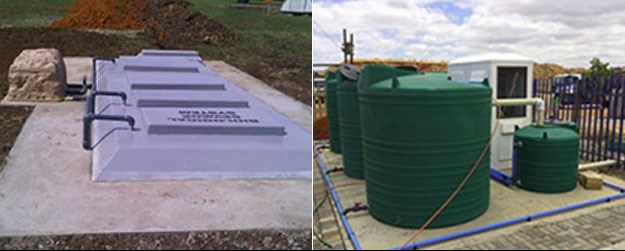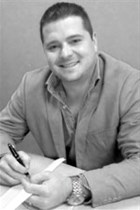Marketing & Media trends
Industry trends
BizTrends Sponsors
Trending
#BizTrends2017: Water recycling, re-use and sustainability

Housing and infrastructure developments across the country have been disapproved by councils due to the lack of capacity at their respective waste water treatment plants. This has a huge impact on the South African economy as it directly impacts investment, job creation and economic growth.
In 2017, we can expect to see onsite waste water treatment plants becoming more popular as they will become the only way that developers can continue with their respective developments. This entails the procurement of an onsite waste water treatment plant that is operated by the owner of the development and not the respective council.
Homeowners, lodge operators and other small producers of waste water are also now realising the value of onsite waste water treatment. The cost of procuring potable water from the council or the cost of electricity to pump from boreholes can be effectively mitigated by re-using the effluent through an onsite DIY type waste water treatment plant. In recent case studies it was found that a guesthouse that irrigates their garden three times a week can save up to 40% on their water bill by installing an onsite treatment facility. This trend is going to grow rapidly in 2017.
The technology
There are various suppliers of onsite waste water treatment facilities in South Africa, from small plants that treat 1,000l per day up to modular plants that treat 500kl per day. Although there are various regulatory considerations, the majority of systems are submersed aeration media with return activated sludge (SAM-RAS) plants.
Traditionally, the technology was dependent on electricity and due to the aeration time needed, this was not cost effective for solar operation. The newest development in the industry is that of non-electrical waste water treatment plants. The first plant is in testing phase and the impact of these plants will be revolutionary. The capital cost is reduced by 50% and the operating cost by 80%. These developments will make it affordable for a middle class family to recycle 100% of the waste water they produce at a very low capital input.
What to look forward to
The initial non-electrical plant discharge quality is very positive; this provides the industry with the possibility to implement waste-to-food plants, which opens a whole new industry. The process is based on a non-electrical waste treatment plant, but instead of final disinfection Daphnia, “water fleas” are introduced that feed on the large amount of bacteria that is present in the water, the Daphnia grow rapidly and are highly nutritious – for this reason, they are in turn fed to live fish. The fish are then harvested as a food source, hence the term waste-to-food.
This can be game-changing in rural areas where the current pit latrines are causing serious pollution of the underground water table. By converting these to waste-to-food plants, the user will not only have access to their own food source but will have high quality water for irrigation of their own crops thereby addressing two of the major concerns in rural areas.
South African consumers are waking up to the realisation that water is an expensive commodity and needs to be re-used, and recycled. The new developments in non-electrical treatment plants make the technology cost effective and sustainable. The additional benefit of waste-to-food plants will provide highly beneficial downstream effects for elimination of poverty and ensuring food security.











